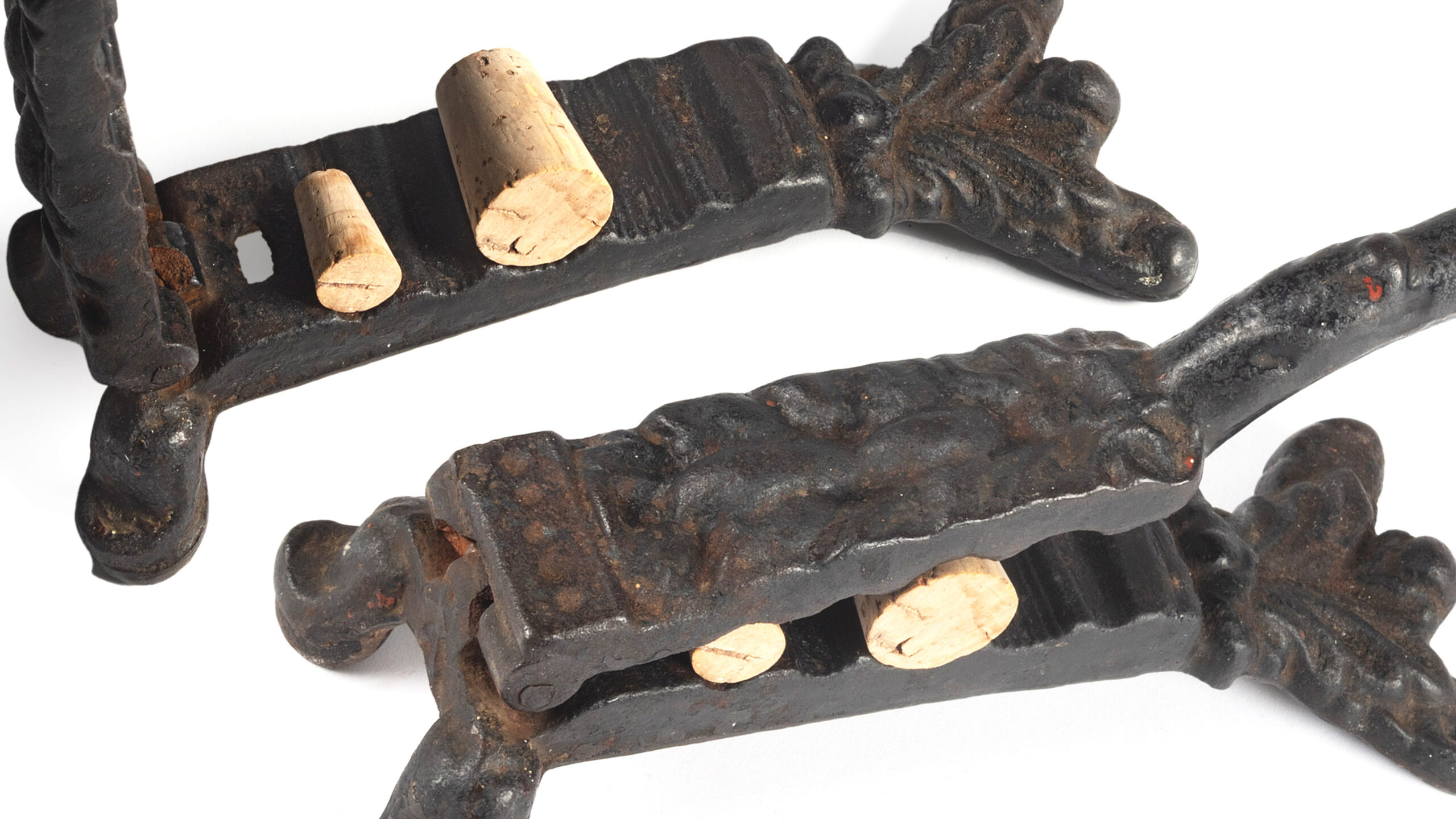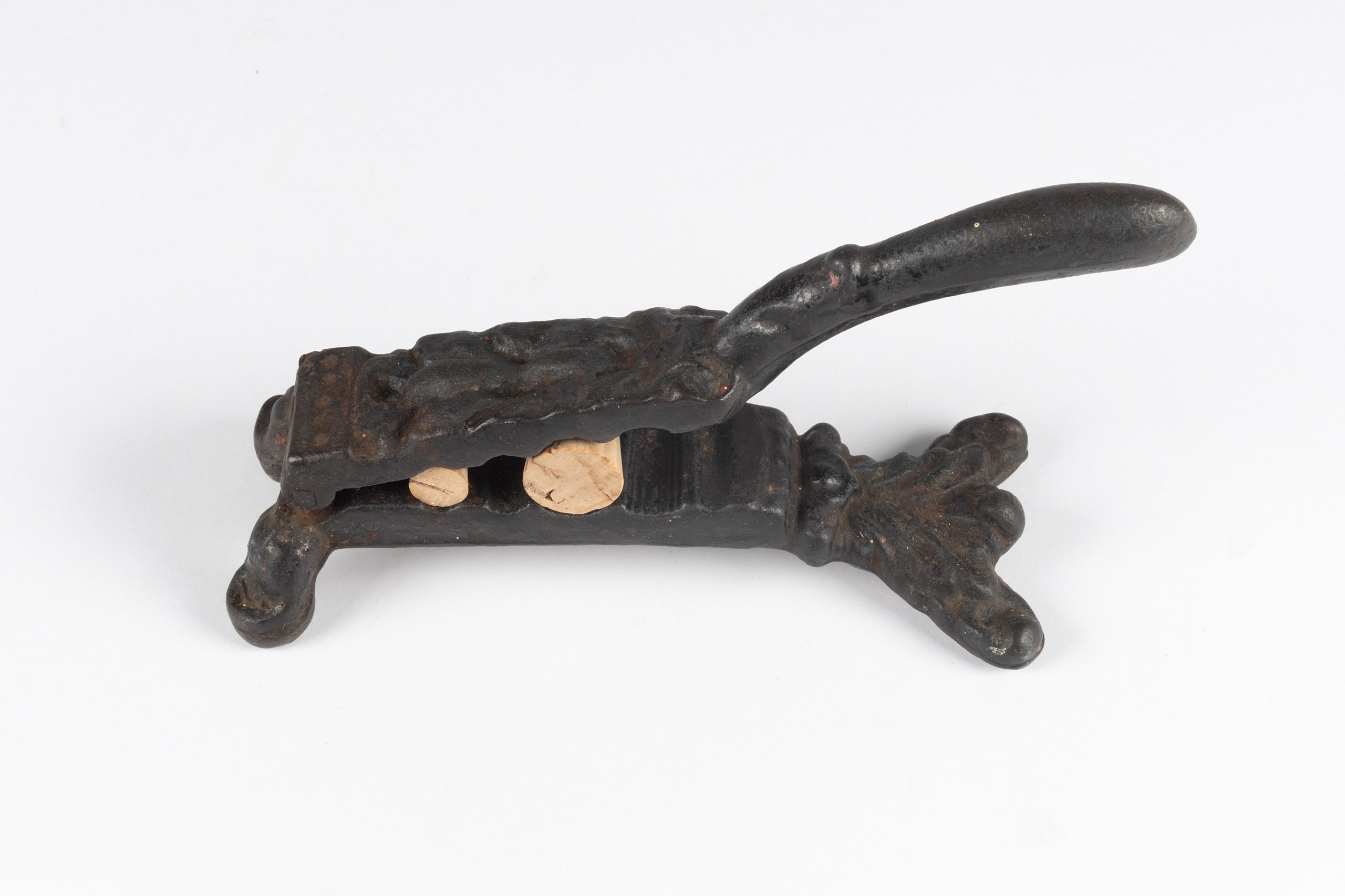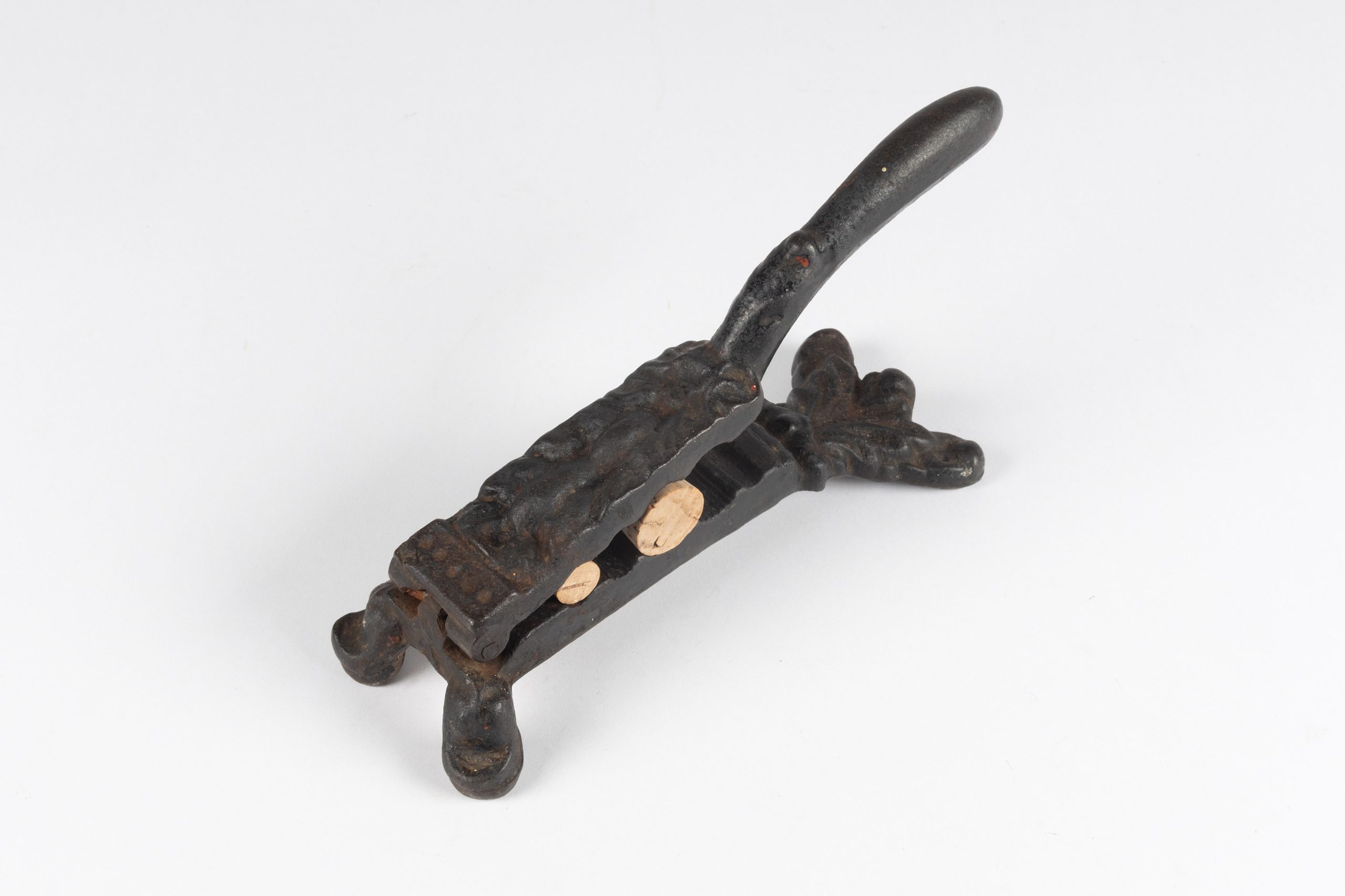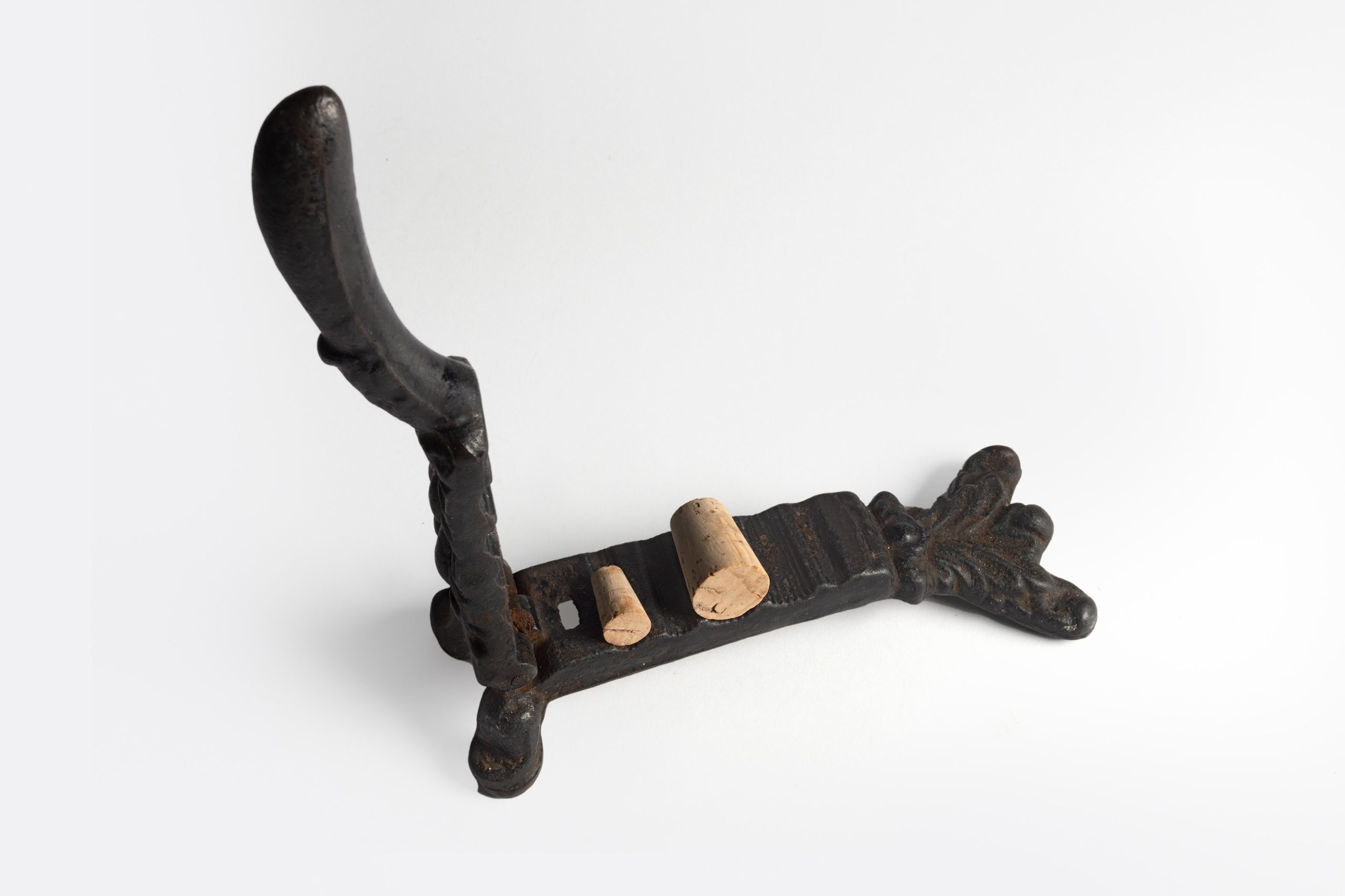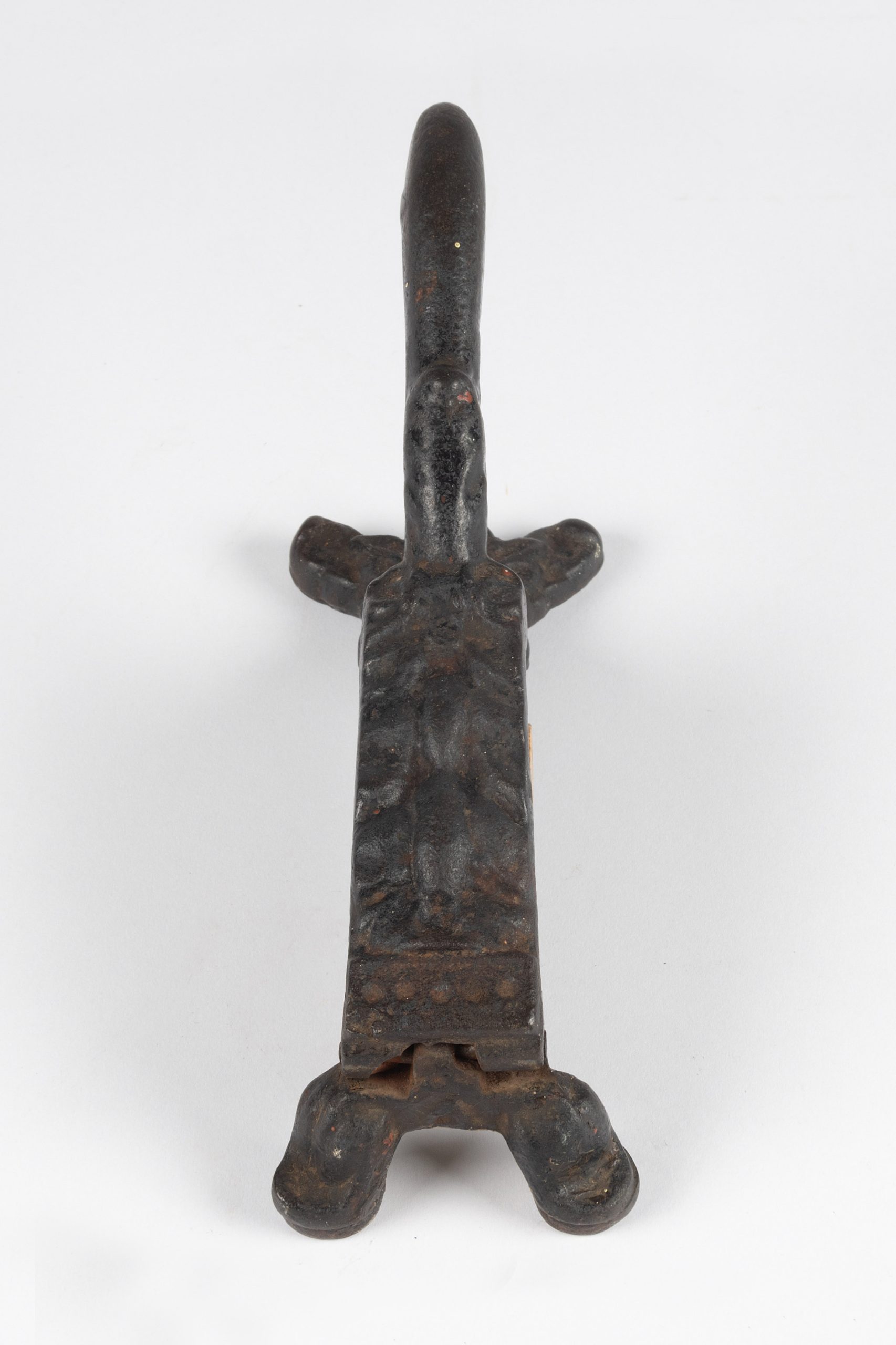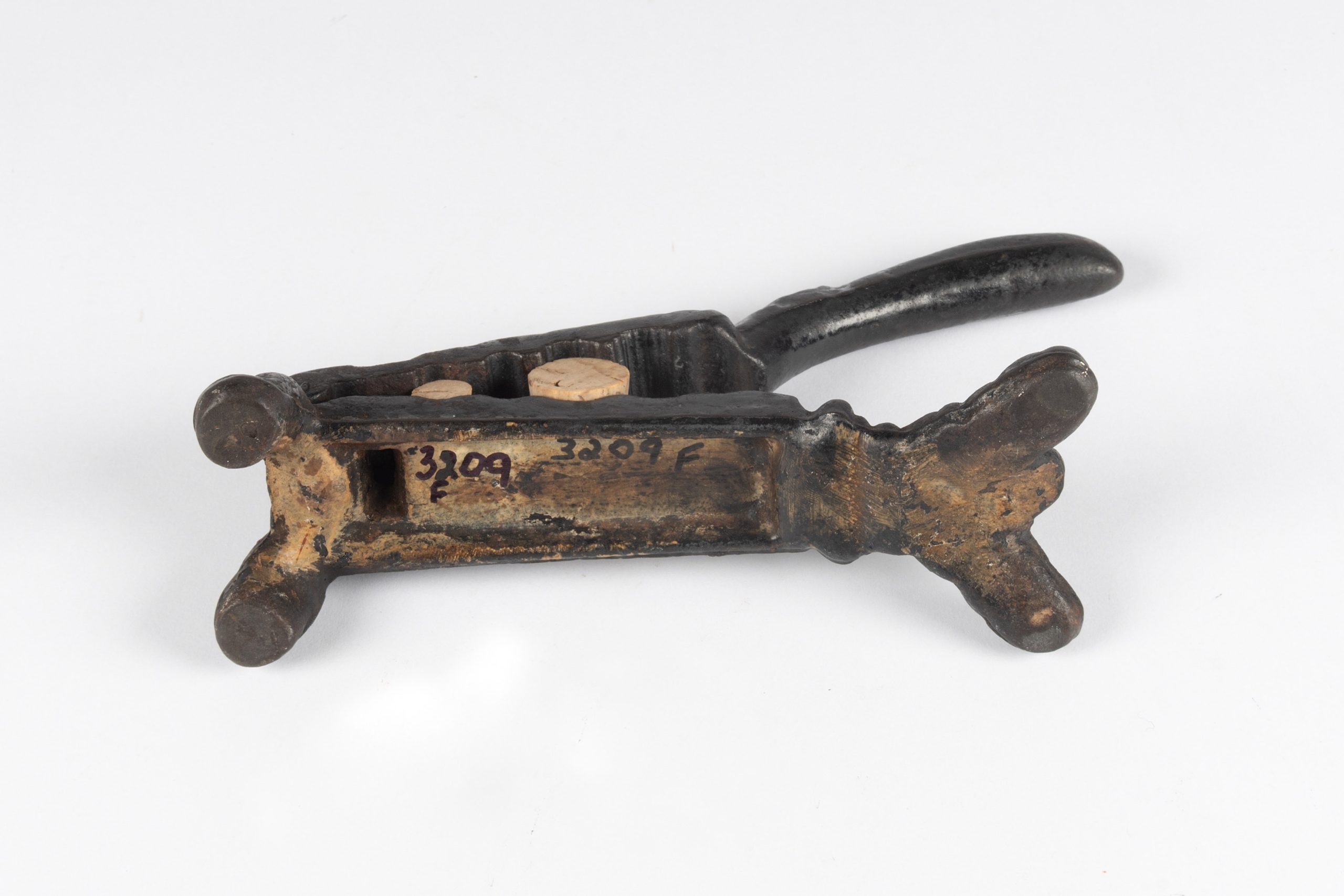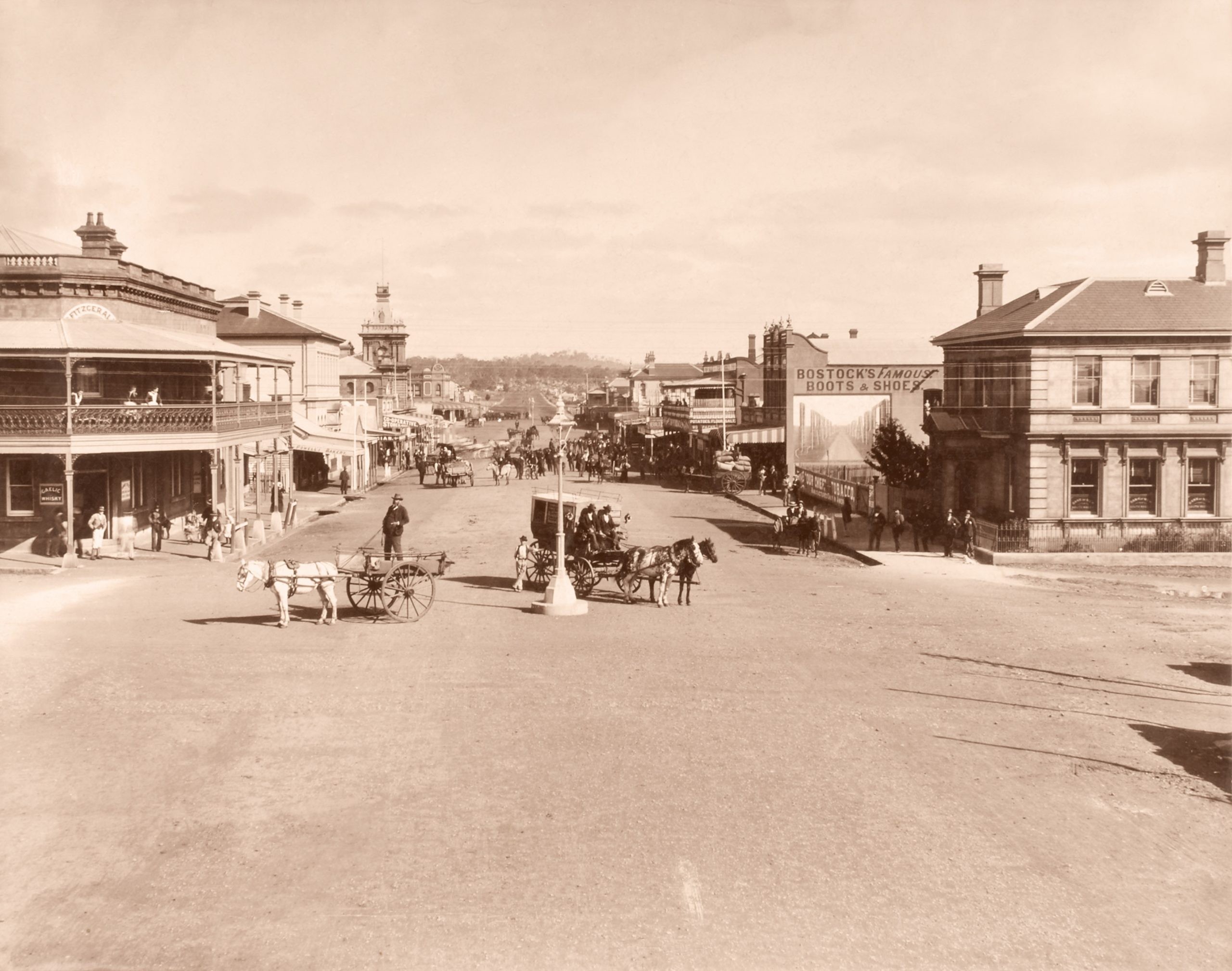Corked Cures
Arthur J. Dodd, Glen Innes Pharmacist
When Arthur J. Dodd (1849-1923) arrived in Glen Innes, northern NSW, there was no telling the impact he would have over the next fifty years.
Born in Kent, England, he set his sights on becoming a chemist as a young person and, in his early twenties, honed his skills as a sick bay attendant for the Royal Navy. Arthur was able to immigrate to Australia by working as a dispenser aboard the Clio (a Navy warship) and immediately set to work as one of the first practising pharmacists in a shop on Grey Street in Glen Innes.
By 1901, he had established himself at a shop on the corner of Bourke and Grey streets where he supplied patent medications over the counter and dispensed his own formulas – a common practice at the time.
Like most pharmacists, Dodd would have dispensed his tonics in bottles embossed with his own name and sealed with a cork. He would have used a cork press, like this example from the area, for the job. Made of cast iron, the press has several wells that compressed corks of various sizes to fit whichever bottle he was using.
Tonics were very popular at this time for their purported ability to settle a range of illnesses and discomforts. For example, Arthur stocked Clements’ Tonic which was advertised as a ‘radical cure’ that could restore ‘lost power and vigor’ from neuralgia, nervousness, ‘lassitude,’ and loss of appetite.
As well as medicines, Arthur sold other useful items such as spectacles, soaps, toothbrushes, razors, smelling salts, and even seeds for gardening. He took it another a step further by meeting the community’s need for a dentist and working on teeth in the backroom of his pharmacy.
The building where Arthur worked has since become heritage-listed and, funnily enough, has always housed a locally-owned pharmacy with pharmacist owners (it is presently called Timbs Pharmacy). Upon his passing, Arthur was remembered for being ‘a man of quiet and retiring disposition… Many kindly acts he did in a quiet and unostentatious way, while his innate gentlemanliness stamped him at all times as an Englishman of the good old type.’


